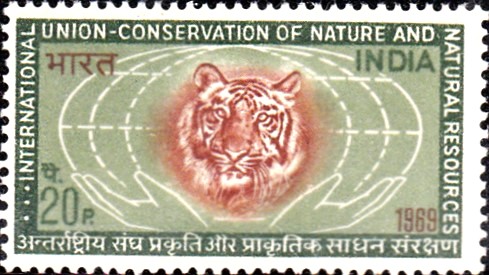
India on IUCN
A commemorative postage stamp on the International Union for Conservation of Nature and Natural Resources (IUCN) conference held in New Delhi :
 Issued by India
Issued by India
Issued on Nov 24, 1969
Issued for : India is proud to play host to this international meeting to be held on November 24, 1969 and the Posts and Telegraphs Department is happy to celebrate the occasion by issuing a special postage stamp to mark the inauguration of the Conference.
Description of Design : The design of the stamp is horizontal and depicts a picture of a tiger head in the middle alongwith two hands below it with a global background in white lines. The tiger head is adopted from the Photo by Shri K.S. Sankhala, Director, Zoological Park, New Delhi.
Type : Stamp, Mint Condition
Colour : Olive Green and Light Brown
Denomination : 20 Paise
Overall Size : 4.06 X 2.28 cms.
Printing Size : 3.80 X 2.00 cms.
Perforation : 14 x 14½
Watermark : Printed on unwatermarked Adhesive Stamp paper
Number Printed : 30,00,000
Number per issue Sheet : 50
Printing Process : Photogravure
Designed and Printed at : India Security Press
About :
- The International Union for Conservation of Nature and Natural Resources (known in brief as IUCN), which is an international organization, defines conservation as the rational use of earth’s resources to achieve the highest quality of living for mankind.
- The Union’s main field of activity lies in conserving the plants and animals, the soil, water, air and other natural wealth which constitute the earth’s basic assets.
- The IUCN promotes:
- (1) Awareness through education, so that as many people as possible may understand the value and importance of renewable natural resources and appreciate the need to use them wisely.
- (2) Research to discover the best measures for conservation and to advance the study of ecology upon which all practical conservation depends.
- (3) Assistance in providing advice based on ecological considerations, scientific and technical data, source material and references and all the manifold contacts required for the co-ordination and conduct of practical conservation programmes.
- (4) Action on a national and international scale, in support of conservation programmes as well as in strengthening legislation and improving its enforcement.
- The IUCN is comprised of six Commissions:
- (i) Survival Service Commission: It was formed in 1949, to prevent the extermination of threatened species of wild life.
- (ii) Commission on Education: The Commission on Education is primarily responsible for educational aspects and acts as a clearing-house for educational material relating to the conservation of nature and natural resources.
- (iii) Commission of Ecology: It serves as the primary scientific advisory body for the Union.
- (iv) International Commission on National Parks: It specialises in encouraging the establishment of national parks throughout the world.
- (v) Commission on Legislation: It has two basic functions. It provides information on legislation or regulations concerning conservation of nature and natural resources to governments, and advises governments, parliaments and other authorities on proposed legislation or regulation, including international agreements and conventions.
- (vi) Commission on Landscape Planning: It is concerned with the relations of man and his environment. Since man’s present well-being, and indeed his future survival, depends upon how well he uses and manages the earth’s natural resources, planning for land use assumes a position of urgent and vital importance.
- The Union convenes a General Assembly every third year in order to act upon issues of current importance, and to serve as a forum for discussion of conservation problems. Between 1948 and 1966, General Assemblies were held in Fontainebleau (France), Brussels (Belgium), Caracas (Venezuela), Copenhagen (Denmark), Edinburgh (Scotland), Athens (Greece), Warsaw (Poland), Nairobi (Kenya) and Lucerne (Switzerland). The tenth General Assembly is being held in New Delhi (India).
- The importance of the Conference for India is obvious considering that it is second to only Africa in its natural grandeur, wide variety of nearly 500 species of mammals and nearly over 2000 species of colourful and singing birds, apart from nearly 30,000 insects, fishes, reptiles, etc.
- It is hoped that the deliberations of the I.U.C.N. will lead to the conservation of our nature and natural resources, including wild life.


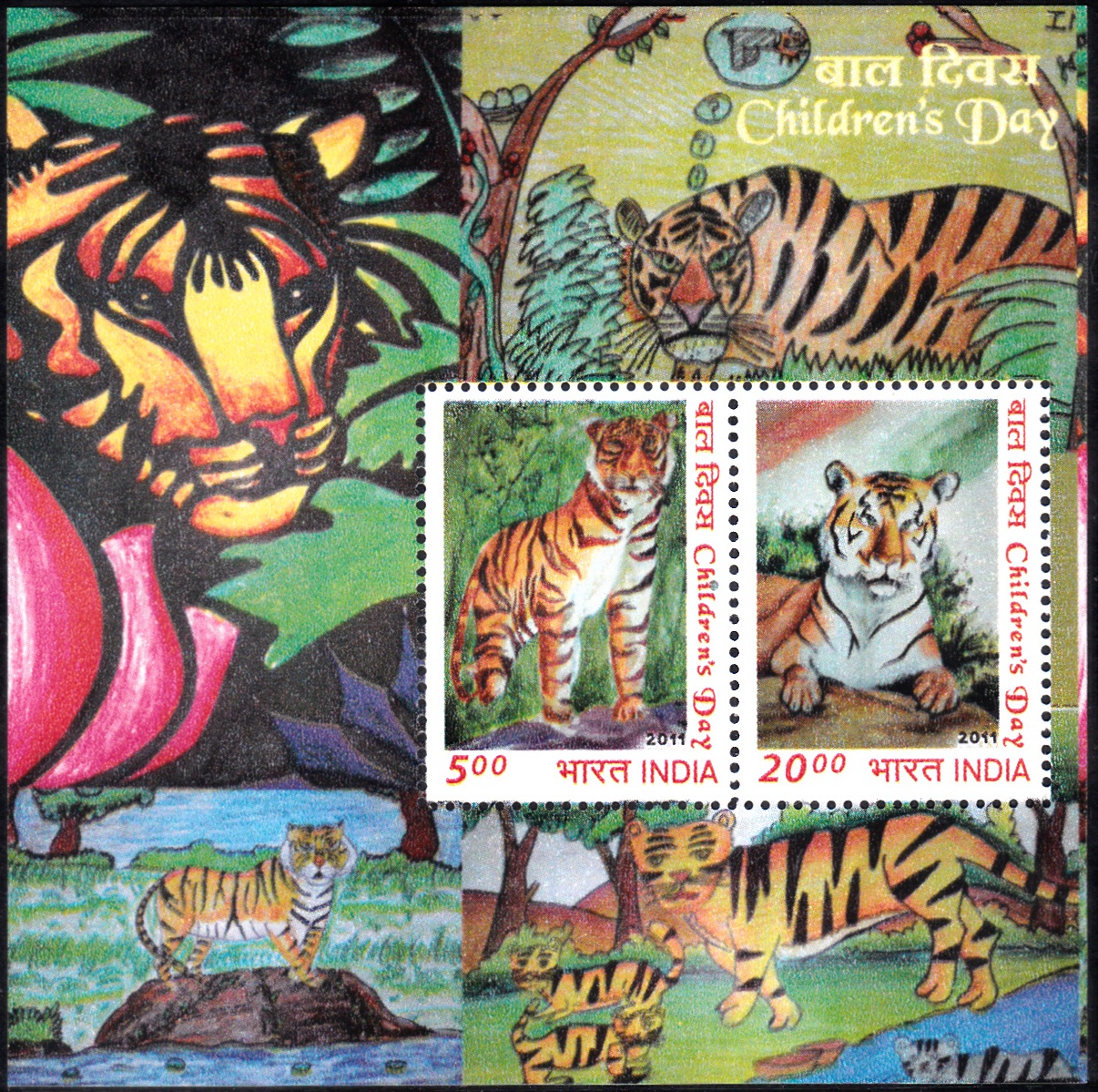
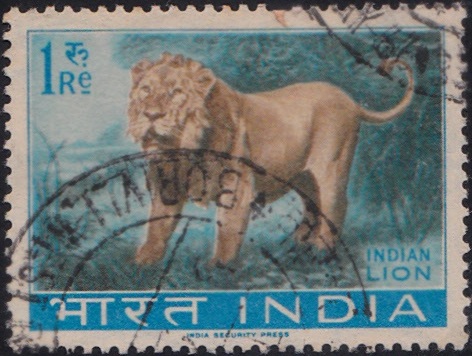
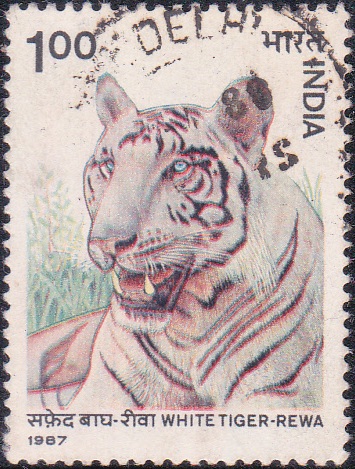
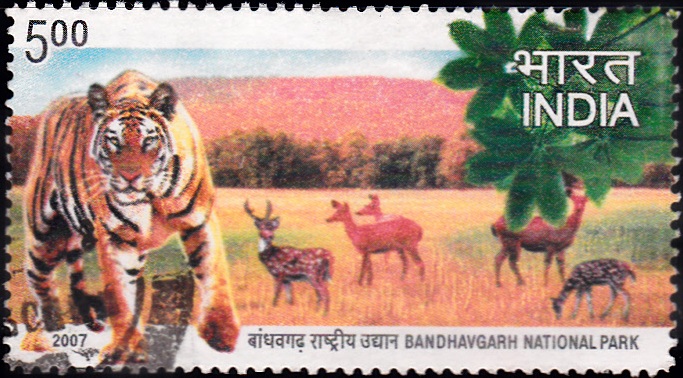
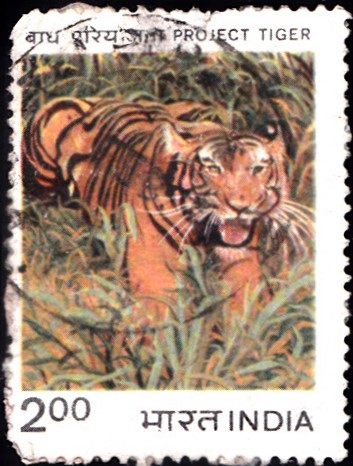
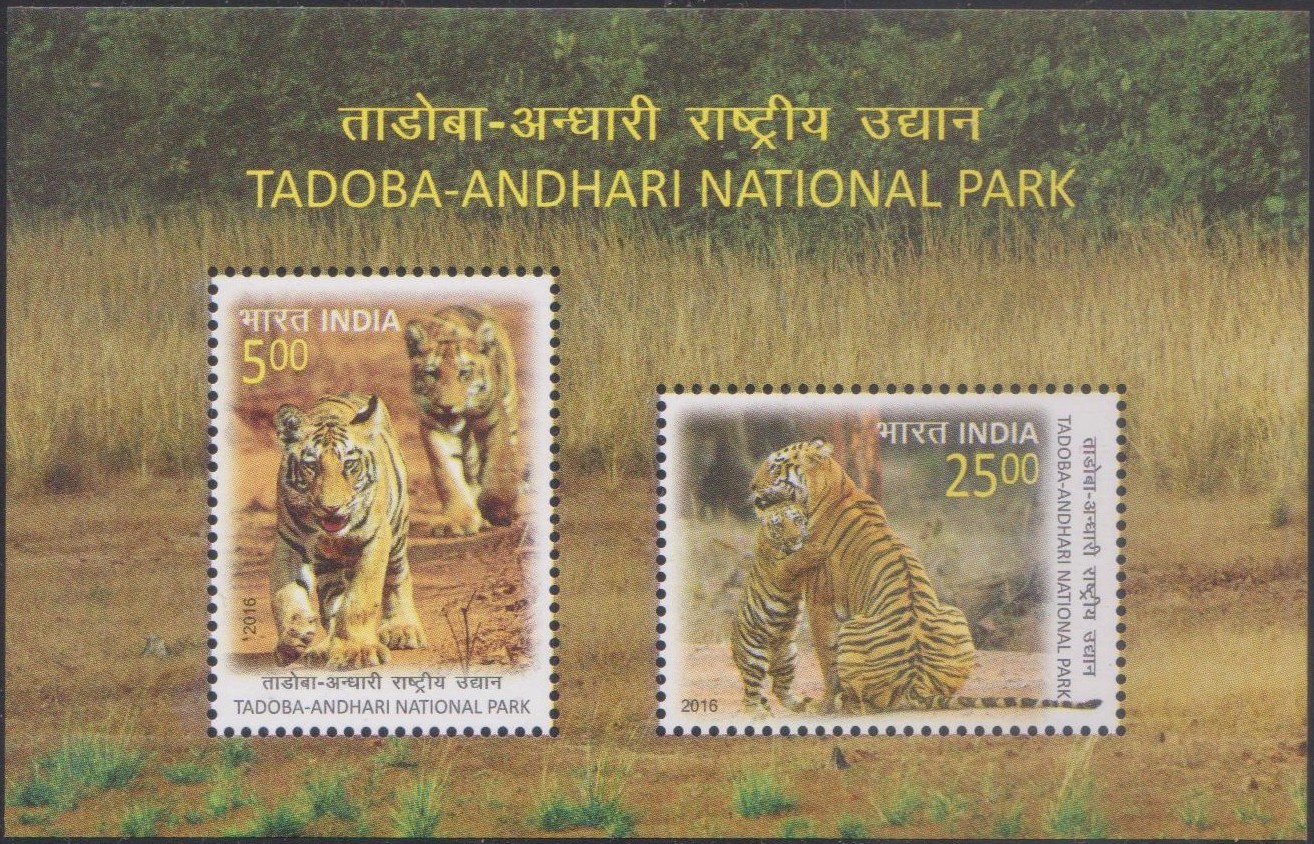
[…] International Union for Conservation of Nature and Natural Resources (IUCN) which is an international organization working in the field of nature conservation and […]
[…] this species estimates that about 350-400 individuals remain in the wild. It is listed on the The International Union for Conservation of Nature and Natural Resources (IUCN) Red List as Critically Endangered. It is also listed in Convention on International Trade in […]
[…] substantially. At present the Bengal Tiger is listed under “Endangered” category in the IUCN (International Union for Conservation of Nature and Natural Resources) red list of threatened […]
[…] of endangered birds and all State Governments accepted the recommendation. The Red Data Book of the International Union for Conservation of Nature and Natural Resources (IUCN) has placed the species in the endangered list. In 1969, at the IUCN General Assembly held at […]
[…] in continuing decline of population. It has been assessed as ‘Endangered-EN‘ as per International Union for Conservation of Nature and Natural Resources (IUCN) […]
[…] International Union for Conservation of Nature and Natural Resources (IUCN) which is an international organization working in the field of nature conservation and […]